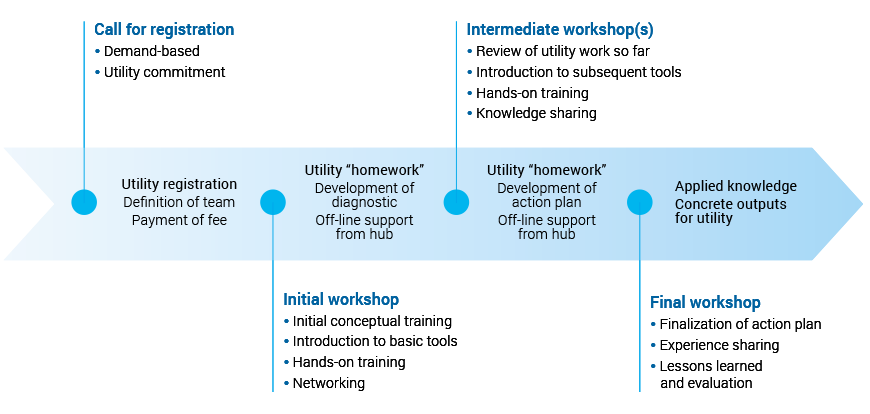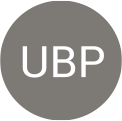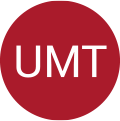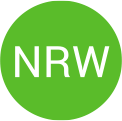D-LeaP Programs
The Danube Learning Partnership (D-LeaP) delivers to participating utilities and professional staff three main types of capacity building programs as part of a virtuous cycle of Check – Plan – Do performance improvements:
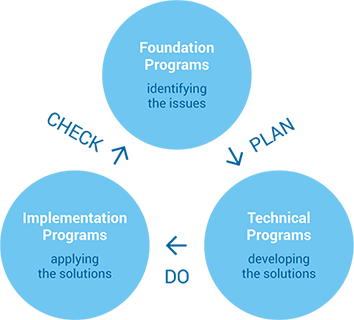
Foundation Program Offering:
Foundation programs are the entry point into a continuous improvement cycle and help participating utilities and staff to establish their own diagnostic of high-impact issues affecting the performance of their utility companies. These programs rely on the power of benchmarking utility performance against other similar companies and international benchmarks, and facilitating dialogue among practitioners on good practices.
Technical Program Offering:
Once utilities and staff have identified the main issues affecting their performance, they can choose from a range of technical programs covering the main utility management topics. These programs do not only provide training on the solutions to those challenges, but also help utility staff to prepare concrete action or investment plans to address those challenges.
Implementation Program Offering:
A combination of lack of financing as well as insufficient operating and contractual capacity is often the reason for the inability of utilities to implement the solutions they have developed. The implementation program helps utilities to develop a set of implementation tools.
Most program offerings follow a similar design based on learning-by-doing principles. They include a mix of physical training workshops providing tools and techniques to address the challenges faced and see them applied in practice, followed by on the job training, in which participating utilities apply the tools and techniques to their particular situation and develop concrete products (diagnostics, action plans etc.). The principles of blended learning are applied, i.e. face to face training is accompanied by e-learning material provided within the D-LeaP Academy.
Most programs are offered in two alternative registration options: as utility team, including the participation of several staff members, the provision of remote support between workshops and the development of concrete outputs, and as individual professionals, focused only on the training materials and workshops.
